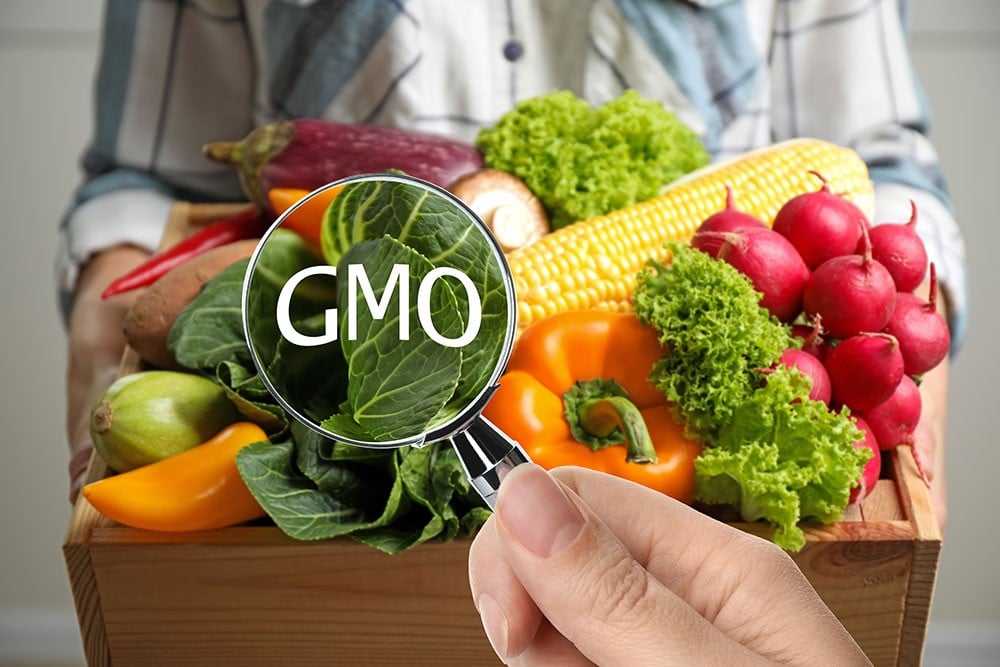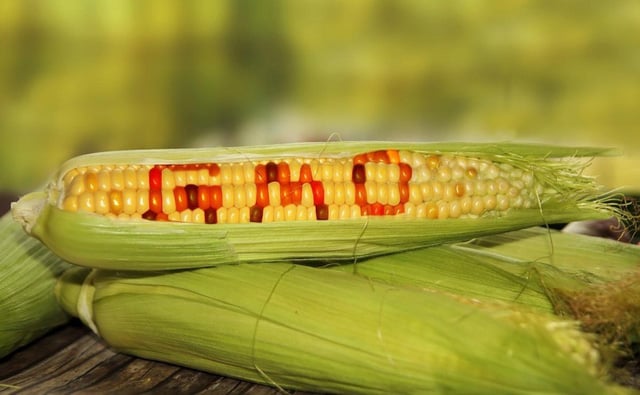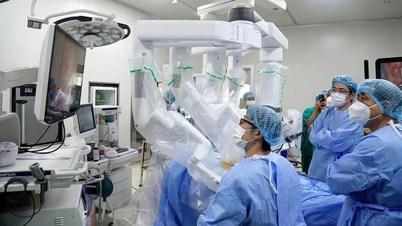1. What are genetically modified foods?
According to the World Health Organization (WHO), a genetically modified organism (GMO) is defined as an organism (plant, animal or microorganism) in which the genetic material (DNA) has been altered in a way that does not occur naturally through mating and/or natural recombination. This technology is often referred to as "modern biotechnology" or "gene technology", sometimes also referred to as "recombinant DNA technology" or "genetic engineering". It allows selected individual genes to be transferred from one organism to another, even between unrelated species. And foods produced from or using genetically modified organisms are often referred to as genetically modified foods e.
One of the goals of developing crops based on genetically modified organisms is to improve crop protection through the introduction of resistance to plant diseases caused by insects or viruses.
In terms of morphology, genetically modified foods can be similar or different from conventional foods depending on the genes that are introduced to determine the traits. In addition, genetically modified foods can have the same or better quality and taste than conventional foods such as: hotter or sweeter peppers; sweeter, more delicious corn...

Genetically modified foods are produced from or using genetically modified organisms.
2. Does eating genetically modified foods cause cancer?
According to WHO, specific systems have been established to rigorously assess genetically modified organisms and genetically modified foods in relation to human health and the environment. Safety assessments of genetically modified foods typically focus on: Direct health effects (toxicity); potential for allergic reactions; specific components believed to have nutritional or toxic properties; stability of the introduced gene; nutritional effects associated with the genetic modification; and any unintended effects that may result from the introduction of the gene.
Different genetically modified organisms contain different genes introduced in different ways. This means that each genetically modified food and its safety must be assessed on a case-by-case basis and it is not possible to make general statements about the safety of all genetically modified foods.
Genetically modified foods currently on the international market have passed safety assessments and are unlikely to pose a risk to human health. Furthermore, no adverse effects on human health have been demonstrated as a result of consumption of such foods by the general population in countries where they are approved.
Growing concerns about the potential harmful effects of genetically modified foods led to federal legislation in 2016 requiring uniform labeling of foods containing genetically modified ingredients, according to the American Cancer Society.
Theoretically, these additional genes could produce substances that cause reactions in sensitive or allergic people, or result in high concentrations of compounds that cause other health effects.
There is currently no evidence that foods currently on the market that contain genetically modified ingredients or substances in them are harmful to human health, or that they will increase or decrease the risk of cancer. The World Health Organization, the American Medical Association, the National Academy of Sciences , and the American Association for the Advancement of Science have all taken the position that current evidence suggests that foods containing genetically modified ingredients are safe.
3. Some common genetically modified foods
Chances are you are eating foods and products that are made with ingredients derived from genetically modified crops. The U.S. Food and Drug Administration says that in this country, many genetically modified crops are used to make ingredients such as: cornstarch, corn syrup, corn oil, soybean oil, canola oil, or granulated sugar. Some fresh fruits and vegetables are available in genetically modified varieties, including: potatoes, summer squash, apples, papayas, and pink pineapples.
More than 95% of animals used for meat and milk in the United States eat genetically modified crops. Independent studies have shown no difference in how genetically modified and non-genetically modified foods affect animal health and safety. The DNA in genetically modified foods does not pass to the animals that eat them. This means that animals that eat genetically modified foods do not become genetically modified foods.
Research shows that foods such as eggs, dairy products and meat derived from animals fed genetically modified foods are nutritionally equivalent, safe and of equal quality to foods derived from animals fed only non-genetically modified foods.

Corn is a popular genetically modified food.
According to Dr. Pham Thuy Duong, Lecturer at the Faculty of Biotechnology, Phuong Dong University, consumers need to have certain knowledge about genetically modified foods before deciding to use them. They should choose foods with clear origins, identify genetically modified foods through codes or look at food labels and inspection labels.
In Vietnam, although only 4 genetically modified corn varieties have been recognized (not yet widely planted), the import of genetically modified foods (soybeans, corn, etc.) has been around for about 10 years. Therefore, the regulation of labeling genetically modified foods in Vietnamese contributes to the transparency of information so that consumers can make choices.
Source: https://giadinh.suckhoedoisong.vn/an-thuc-pham-bien-doi-gene-co-nguy-co-ung-thu-khong-172240922212103609.htm


![[Photo] Prime Minister Pham Minh Chinh receives Rabbi Yoav Ben Tzur, Israeli Minister of Labor](https://vphoto.vietnam.vn/thumb/1200x675/vietnam/resource/IMAGE/2025/5/21/511bf6664512413ca5a275cbf3fb2f65)
![[Photo] Determining the pairs in the team semi-finals of the National Table Tennis Championship of Nhan Dan Newspaper](https://vphoto.vietnam.vn/thumb/1200x675/vietnam/resource/IMAGE/2025/5/21/eacbf7ae6a59497e9ae5da8e63d227bf)
![[Photo] Prime Minister Pham Minh Chinh attends the groundbreaking ceremony of Trump International Hung Yen Project](https://vphoto.vietnam.vn/thumb/1200x675/vietnam/resource/IMAGE/2025/5/21/ca84b87a74da4cddb2992a86966284cf)



























































































Comment (0)